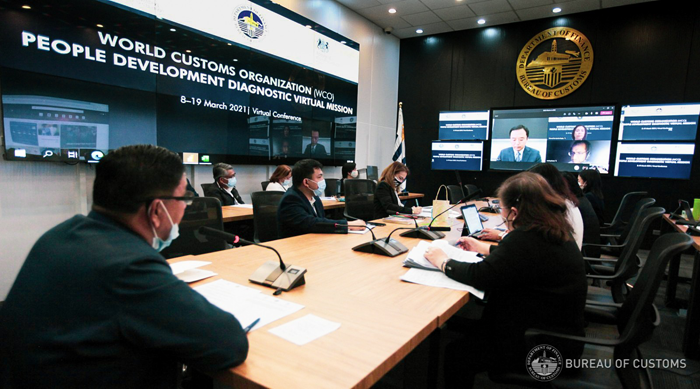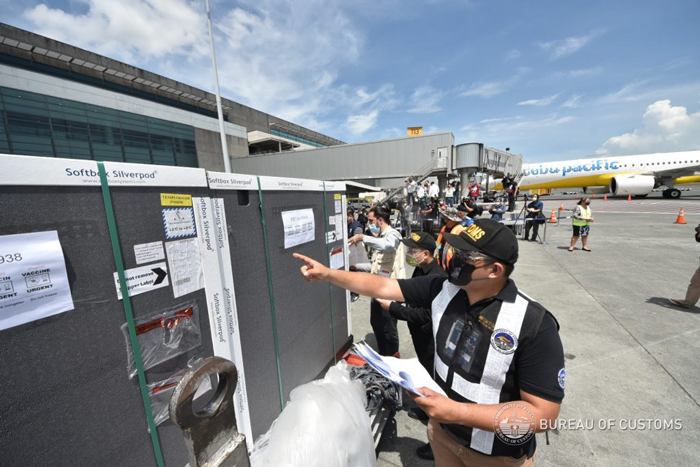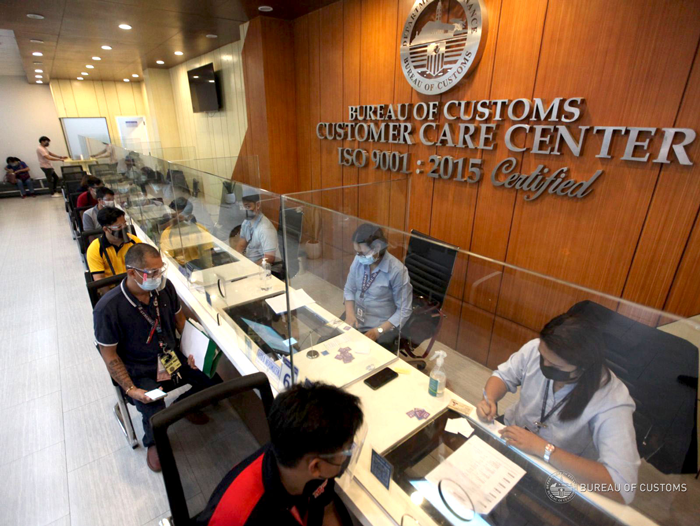When I was appointed to the top position in the Philippines Bureau of Customs (BOC) in October 2018, I was confronted with challenges aplenty, from administrative to operational concerns and systemic deficiencies that made the Bureau vulnerable to corrupt practices. For more than two years now, my team and I have been working tirelessly to reform the negatives, transform the organization, and perform our mandate.
The first priority was to boost the organization’s manpower component to ensure efficiency and professionalism in the delivery of services. Believing firmly that an organization is not an organization without its people, we reviewed the recruitment process to ensure strict adherence to the hiring and promotion procedures established by the Civil Service Commission Rules and Regulations. Our aim was to revive the principle of meritocracy and professionalism, starting with a fair assessment of all applicants. One of our primary focuses was filling vacant positions, a task which the BOC’s Human Resource Management Division (HRMD) delivered efficiently.
Enabling employees to develop their skills was identified as another essential area calling for improvement, and as one of our priority programmes in 2020. The actions implemented included updating training policies and guidelines, improving the management and technical skills training curricula, initiating the transition to a competency-based human resource approach, and preparing for the establishment of the Customs Training Institute within the Philippine Tax Academy.
To date, we have completed the policies and guidelines for participation in the learning and development programmes, and in the Scholarship Programme which enables employees to undertake graduate and post-graduate studies and benefit from other educational opportunities. The Interim Training and Development Division (ITDD) coordinates with the inviting/sponsoring organizations to agree on the details of the programme curriculum and enrolment requirements. Once endorsed, these details are disseminated to all employees who can then send their application to the ITDD if they fit the scholarship candidate profile. The ITDD then evaluates the applications and sends the Commissioner the list of pre-selected applicants for potential nomination. Upon approval of the list of nominees by the Commissioner, the inviting/sponsoring organizations proceed with their own screening process. All the nominees selected must fulfil the requirement to serve with the Bureau of Customs for a period equivalent to twice the length of the scholarship.
We have also put a great deal of work into the completion of the database and the pool of BOC trainers, speakers and experts, and into carrying out 180 activities as part of our learning and development programmes in 2020, in which a total of 5,570 employees participated.
The COVID-19 pandemic has not prevented employees from developing new competencies and strengthening their skills thanks to one of the flagship initiatives of the BOC’s modernization programme, the Online Learning Portal (https://training.customs.gov.ph), which was launched in June 2020.
In January 2021 the BOC deployed tools enabling the Administration to use a competency-based approach. These include:
- A Competency Catalogue listing 89 identified competencies relevant to the BOC.
- A Competency Framework which takes the form of a diagram that brings together the competencies in three groups: Core, Functional and Leadership.
- A Competency Dictionary which provides not only a definition of each competency but also the behavioural indicators associated with it, making it possible to monitor competency levels and proficiencies as well as individual progression.
- Job Profiles for the 125 existing positions within the BOC, identifying the competencies required for each job and their respective behavioural indicators.
- Revised Qualification Standards which establish minimum requirements and competency levels for each of the 125 positions.
With the integration of these tools to the human resource management systems, employees will soon have a clear view of their role and performance criteria, and the Administration will be able to properly manage recruitment, succession planning, expectations, and evaluations..
The BOC also asked the WCO Secretariat for support, and benefited from a People Development Diagnostic Virtual Mission in March 2021. This addressed topics such as strategic orientation, competency and job profiling, planning and performance management, training, career path development, remuneration and benefits.

Our reform agenda was gaining momentum when the COVID-19 pandemic hit in 2020. The pandemic brought about an urgent need for businesses and organizations to protect their own employees and guarantee their wellbeing, while also pursuing efficient and profitable operations.
As one of the agencies providing frontline services, and the government’s arm in essential commodity supply chain, any disruption in BOC operations would have been detrimental to the government effort to handle the health crisis. To protect the health of the men and women in the BOC who were working to prevent a total economic downturn, all mandated health protocols, such as social distancing, were strictly adhered to, and regular swabs and rapid tests on all our employees were conducted.
In accordance with national health and safety measures, weekly disinfection of facilities has been carried out consistently since March 2020 in the Customs Central Office and the Customs offices located in the country’s biggest ports, namely, the Port of Manila, Manila International Container Port and Ninoy Aquino International Airport. Personal protection equipment (PPE) and medical supplies, such as facemasks, gloves, alcohol-based cleaners and wipes, footbaths and thermal scanners have moreover been distributed in the BOC Central Office and the major ports.

It was also decided to implement alternative work arrangements. These comprise work-from-home arrangements, four-day or compressed working weeks, and the maintenance of a skeleton workforce with a minimum number of employees on site in the office to guarantee essential services. Such arrangements required staff to submit reports on their work to their respective manager for monitoring purposes. The ultimate objective was to limit the movement of critical workers and thus minimize physical contacts. Furthermore, in view of the limited public transportation in operation, a shuttle van service was made available to employees who were on duty as part of the skeleton workforce, for their convenience and safety.
Thankfully, the BOC had finalized several computerized systems before the COVID-19 outbreak. The priority programmes implemented in 2019 and 2020 included the review of policies and processes, as well as heavy investment in information and communications technology (ICT) to automate Customs operations, so as to promote trade facilitation and minimal human interaction. Like many other administrations, the BOC’s ability to ensure the continuity of its operations during the peak of the COVID pandemic, while placing a premium on the safety of its workforce, was mainly thanks to the Bureau’s IT system upgrades in 2019 and its drive to fully automate frontline transactions by 2020.
The BOC also launched a Customer Care Portal System (CCPS) in February 2020. A ticketing system, CCPS, allows trade operators to submit their concerns, complaints or questions electronically, as well as to upload documents. Like the Customs automated system, the CCPS is part of the implementation of the no-contact policy which promotes a corruption-free regime by minimizing face-to-face transactions. During the quarantine period, it enabled the BOC to keep serving stakeholders while lowering the chances of BOC personnel entering into contact with the virus. The CCPS also features a “knowledge base” with information on a series of requirements and regulations attached to the international movement of goods. It serves as a one-stop-shop information centre.

Another technology-related initiative is the Internal Administration Management Support system (IAMS), which aims at bringing to a close the era of the largely manual and paper-based organization of the Bureau. It covers the main human resource management processes such as recruitment, training and development, records management, processing of leave applications, payroll management and supplies management.
Among the various challenges confronting the BOC are poor office accommodation and inadequate equipment and infrastructure. To improve offices and facilities and create a workspace that is conducive to professional and productive output, a plan was drafted prioritizing the most urgent actions to be taken, given our limited financial resources.
One of the first achievements was the construction of a new prefabricated workspace for the Port of Manila’s operations and administrative personnel, as well as its District Collector and Deputy Collectors. Inaugurated in October 2020, the 1,004.8 sqm office was designed to enhance efficiency and coordination among its occupants.
A new Customs Operations Centre also opened in December 2020. Designed to house the different intelligence, enforcement, risk management and scanning systems of the Bureau, the Centre’s officers are to help enhance the operations of the 17 Collection Districts located across the country, and aid their peers from the Customs Intelligence and Investigation Service (CIIS) and Enforcement and Security Service (ESS) in the efficient discharge of their functions.
Lastly, the BOC has purchased equipment needed for employees to carry out their duties effectively, including 65 rifles for Customs enforcement officers in charge of securing the national borders.
In any organization, performance can also be measured by the level of joy and meaning employees get from their work. This will automatically reflect on the quality of the service provided to trade operators, the nation and the individual Filipino.
The Bureau’s core values are professionalism, integrity and accountability. The BOC recognizes the importance of having a shared vision and values among its personnel in order to enhance not only performance at the organization level but also individual personal development. To promote these values among its employees, the Bureau has developed several tools under a global Performance Governance System (PGS), including the Governance Culture Code as the handbook for BOC employees. This sets the standards for establishing and sustaining a culture of competence, accountability, professionalism, integrity, transparency, efficiency and ethical responsibility. The objective is to guide decision-makers, ensure that any action taken is in compliance with global standards and regulations and, ultimately, build trust both with BOC external stakeholders as well as among its employees.
In any organization, performance can also be measured by the level of joy and meaning employees get from their work. This will automatically reflect on the quality of the service provided to trade operators, the nation and the individual Filipino. To encourage the dedication and discipline of our team of professional men and women, and keep them motivated, driven and safe, is therefore a top priority – my first priority. With this in mind, the BOC has reviewed its policy on awards and other forms of recognition in order to motivate all personnel to perform with professionalism, integrity and excellence. The BOC’s Human Resource and Management Division (HRMD) has developed a fair system for compensation, privileges and benefits, as well as performance-based incentives, and communicated the details to all employees.
More information
boc.ocom@customs.gov.ph

